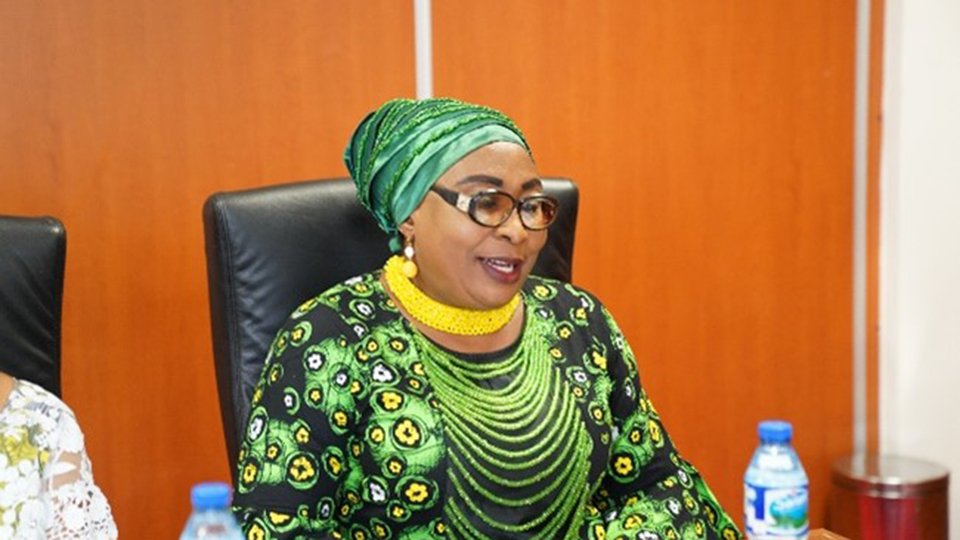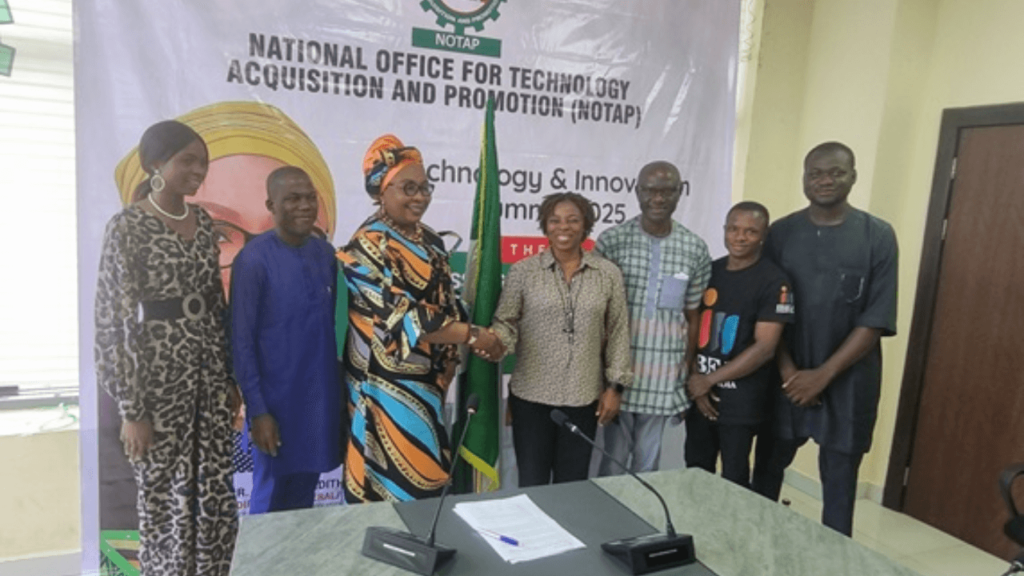In Abuja yesterday, the National Office for Technology Acquisition and Promotion (NOTAP) officially unveiled plans to roll out NOVA — the Nigeria Outsourcing Value Acceleration programme — aimed at recasting Nigeria’s relationship with technology from passive consumer to proactive innovator. With this bold step, the government seeks to embed deeper local content, ramp up indigenous research, and position Nigeria as a serious player in the global outsourcing and tech innovation race.
NOTAP’s Director-General, Obiageli Amadiobi, speaking at a press briefing ahead of the forthcoming Nigerian Technology Innovation Summit in Lagos, emphasised that NOVA is more than a scheme — it is a strategic pivot. “For too long, Nigeria has imported software, applications, and entire systems without consolidating local capacity,” she remarked. “Now we want a technology policy anchored in localisation, development, and creative ownership.”
At its core, NOVA will require foreign tech firms operating in Nigeria to adhere to stricter certification, technology transfer, and R&D obligations. In practice, that means any imported software or system needs an associated local research lab or development footprint here. The Central Bank is already on board: financial institutions will now need NOTAP certification for any outbound technology-related remittances.

Table of Contents
Building the Local Innovation Ecosystem
Under NOVA, NOTAP will partner with independent auditors to detect and register technology currently operating without oversight. That lists those “shadow tech” operations that have escaped certification, ensuring everyone plays by the same rules. Amadiobi noted that while the raw inputs — data, infrastructure, talent — exist in Nigeria, the missing link has been local labs, R&D centres, and incubation hubs.
To remedy this, NOVA encourages tech firms — both homegrown and foreign — to build research facilities in Nigeria. The idea is to shift “import and implement” to “co-develop and localise.” In sectors beyond software, such as medicine, agritech, fintech, and industrial IoT, Nigeria hopes to nurture cross-cutting innovation rather than isolated ICT production.
A critical enabler in this transformation is enforcing compliance. NOTAP will monitor technology transfers actively, while the CBN’s new requirement for NOTAP certification on remittances is designed to plug revenue leakage and ensure accountability. In Amadiobi’s words, “You can’t just bring in the tech and operate from abroad, using Nigerian resources and paying minimal local taxes — you must anchor at least part of your operations here.”
There’s an implicit promise to local institutions, universities, and tech hubs: this is your moment. Through NOVA, not only will private firms be nudged into the ecosystem, but public research institutes and incubators may receive new mandates, resources, or collaboration links to drive sectoral innovation.

A Strategic Move in the Global Outsourcing Competition
The timing of NOVA is not accidental. Globally, the outsourcing landscape is evolving: clients now demand not only cost efficiency, but domain knowledge, proprietary IP, and smart digital capabilities. As the industry shifts toward AI, machine learning, automation, and specialised R&D outsourcing, emerging markets must compete not just on cost, but on competence.
By empowering local firms to own and develop technology, Nigeria stands to capture a larger slice of high-value outsourcing work. Ideally, tasks once outsourced to India, Eastern Europe, or Southeast Asia could be developed or managed from Lagos, Abuja, or Port Harcourt — with Nigerian ownership of the core intellectual property.
If executed well, NOVA could rebrand Nigeria from a cheap labour outsourcing hub to a centre of innovation-led outsourcing. This not only increases Nigeria’s attractiveness to global clients but also curbs capital flight, strengthens control over strategic technologies, and builds long-term sovereignty in tech.
Equally important, NOVA may serve as a model for other African nations seeking to break free from perpetual dependency in technology. Rather than accepting external digital solutions, the emphasis shifts to nurturing domestic capacity — a change of mindset as much as policy.
Opportunities, Risks & the Road Ahead
The promise of NOVA is compelling: more jobs, higher value export earnings, robust research infrastructure, and greater national control over technology. But the path forward will demand careful navigation.
Opportunities lie in:
- Engaging universities and research centres to co-create labs and spinouts;
- Encouraging private investment in tech infrastructure (data centres, fabrication labs, IoT hardware workshops);
- Attracting diaspora technologists and venture capital into Nigeria’s growing innovation space;
- Using NOTAP’s enforcement levers to make compliance non-negotiable, thus growing respect for regulation.
Still, risks are real. The plan hinges on effective enforcement — without corruption or waiver abuse. The compliance burden might scare off foreign firms unless incentives are also provided. Local firms may struggle initially to meet global quality and IP standards. And the sudden transition could disrupt existing players who rely on looser regulatory oversight.
To succeed, NOVA must be phased with support mechanisms: training, grants, tax breaks, and infrastructure subsidies. It must balance regulatory enforcement with encouragement, not stifle innovation under red tape. Perhaps most critically, it must nurture a culture — from governance to academia to industry — of innovation, risk tolerance, and ownership mindset.

As the Nigerian Technology Innovation Summit approaches, all eyes will be on how NOTAP rolls out NOVA. If well executed, it could rewrite Nigeria’s tech narrative — from consumer to creator, from service provider to intellectual property owner. The goal is ambitious, but for a country with vast talent and a growing digital economy, it may just be the pivot Nigeria needs.
Join Our Social Media Channels:
WhatsApp: NaijaEyes
Facebook: NaijaEyes
Twitter: NaijaEyes
Instagram: NaijaEyes
TikTok: NaijaEyes





